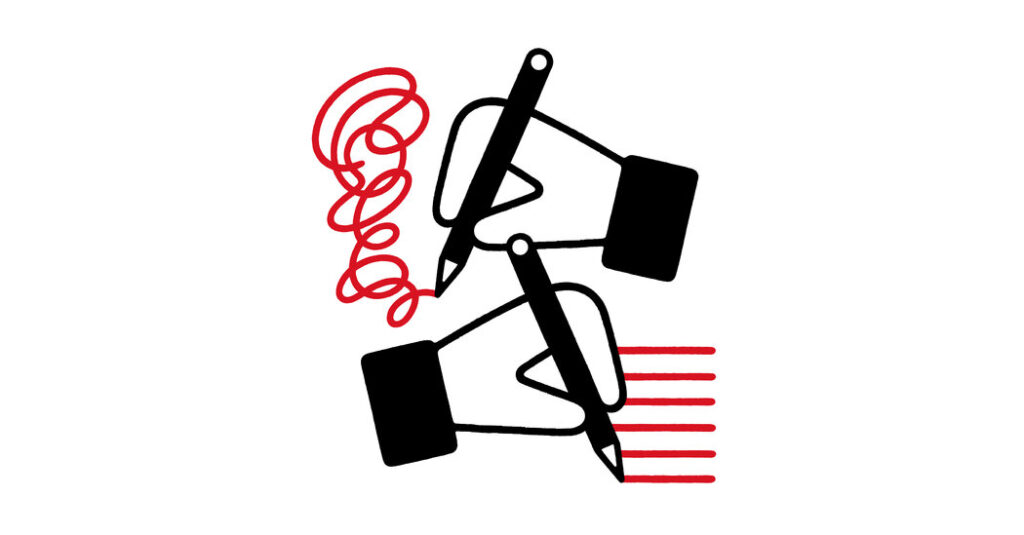I believe that a good friend shares things I tell her in confidence about myself — both intensely personal stories and benign little things. I don’t have any proof of this. But people in our community seem to know things about me that I’ve told her in private. I hesitate to confront her directly without proof, and I don’t want to destroy our friendship. I am in my 40s, and good friends aren’t as easy to make as they once were. But I no longer feel comfortable around her, and I feel betrayed. What should I do?
FRIEND
Let’s start with your fear of destroying this friendship by addressing your concerns head-on. As you describe it, isn’t this relationship ruined already? (You suspect your friend of betraying you and no longer feel comfortable around her: How much worse can things get?) In my view, you have nothing to lose by raising the subject directly and hearing what your friend has to say.
This seems even more important based on your letter, in which you do not write the one thing I expected to read: that you shared this personal information with her alone. Now, if that’s the case, this problem is unfortunate — but not very difficult. You entrusted a friend with your secrets, and she told them to others. The only question then is whether you asked her to keep the information to herself. Not everyone understands privacy in the same way.
My other concern is that you may have shared this information with a few people. In that case, you wouldn’t really know if your friend was the one who blabbed. And that would make a conversation with her necessary: “Did you tell anyone what I told you?” Always give a friend the opportunity to speak for herself. Also, be more careful about the information you share. Secrets have a way of coming out.
A Big Difference Between Reading and Writing
My child is in the eighth grade in the New York City public school system and is now applying to high schools. For a tier of highly competitive schools, the student essay carries great weight in admissions. Among parents, it’s understood that some families seek professional help in crafting their child’s essay. Some parents even write the essay themselves or hire professionals to do it. It’s disheartening when students who receive unfair help are admitted. What should we do: Play by the rules and risk our child’s admission or hire outside help?
PARENT
Every Monday morning, I send my draft column to my editor at The Times. He reviews it and makes suggestions for improvement: trims, modifications and other changes. I am indebted to him for his help, but the work remains mine. There is nothing wrong with parents, teachers or even professional editors helping children to improve their essays. Revision is the central work of writing.
But you are claiming something more serious, too: that some parents are cheating — writing, or hiring others to write, their children’s essays for them, presumably in the voice of a 14-year-old. (Do you know this for a fact, or is this urban legend?) If you actually know of such a case, report it to your school. Otherwise, help your child write the best essay that he or she can as principal author.
Getting Mom’s OK for Pizza and a Movie
I’m a sophomore in high school, and last year I dated a guy two years older than me. The age gap wasn’t an issue, but we put the relationship on pause when my mother discovered it. (I’m not allowed to date.) Now, I feel sad and lonely when I look back on our texts. Since it was my restrictions that caused the breakup, would it be OK if I asked him if we could date again? I’d work things out with my mother this time, instead of hiding anything. But he may be too busy with college applications or not interested in me anymore — and say no. Your thoughts?
TEENAGE GIRL
But he might say yes! I heartily endorse your plan to clear this with your mother in advance. And I would pitch it to her (and to your former boyfriend) as an invitation to hang out — not as a resumption of your relationship. It sounds as if it’s been a while since you’ve seen each other. So, getting together for a movie with some pizza afterward may create less pressure and give you a chance to get reacquainted. Then see how things go. If he isn’t interested, big deal! I guarantee that there will be plenty of friends of all kinds in your future.
Same Time Next Month, Class of ’67?
My high school class of 1967 consisted of 30 girls. Some of us still live in the area. Occasionally, a luncheon is proposed, and a few of us show up. I have attended several of these lunches, and I do not enjoy them. If any of my classmates called with an emergency, I would gladly help them. But I don’t know how to respond to these text invitations. Saying “I’m not available” seems cold and mean! Advice?
ALUMNA
I respectfully disagree. Responding “Take me off this list!” would be cold and mean. But “I’m sorry, lunch meetings are difficult for me. Enjoy yourselves!” seems perfectly polite. It is not your job to placate people you went to school with 60 years ago.
For help with your awkward situation, send a question to [email protected], Philip Galanes on Facebook or @SocialQPhilip on X.
The post I Think My Good Friend Is Betraying Me, but I’m Not Sure. What Should I Do? appeared first on New York Times.




